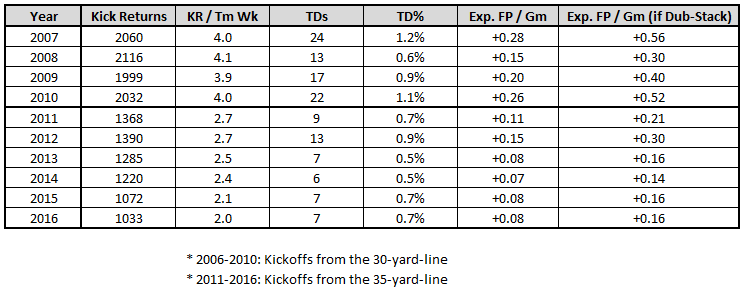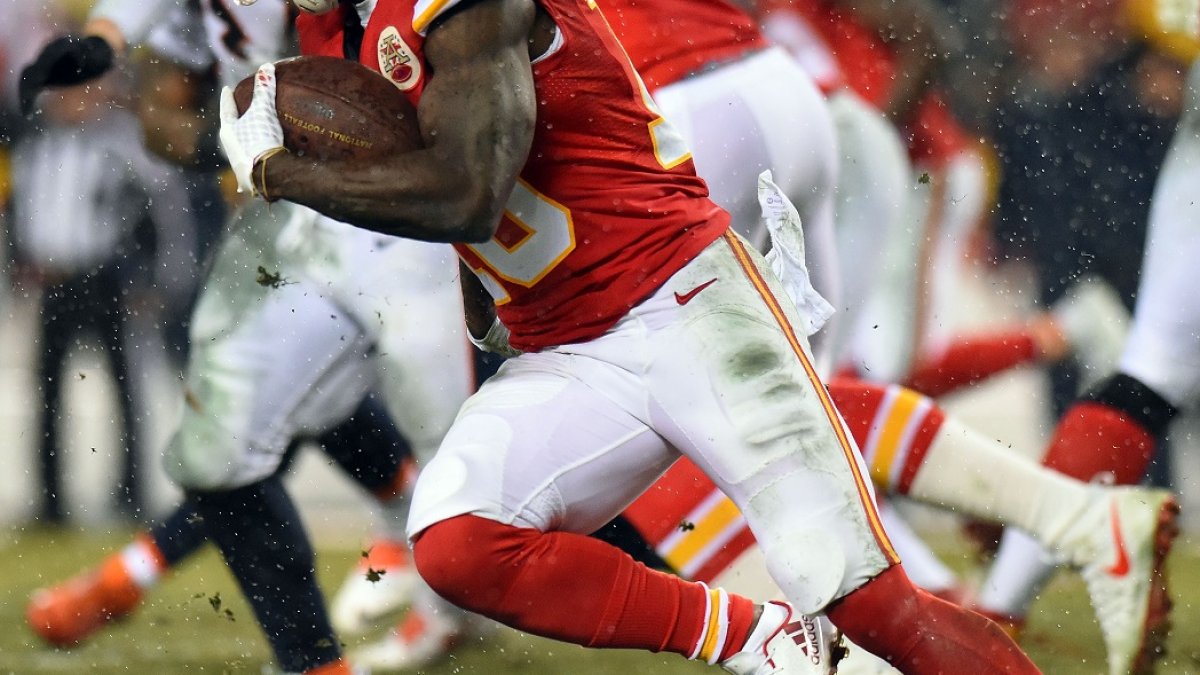There’s an episode of Seinfeld where George Costanza attends a funeral reception and “double-dips” a potato chip. George is immediately met with horror and disgust from an onlooker, Timmy. Timmy’s reasoning – “that’s like putting your whole mouth right in the dip.”
At a party, I doubt I’d really care if I saw someone double-dipping potato chips, but I would get pretty riled up if I saw someone double-dipping in their DFS lineups. It’s one of my biggest pet peeves in DFS — not because it’s a poor strategy in general, but just because it’s presumed advantage is never as great as anyone thinks.
In DFS, double-dipping is the act of pairing a position player (who returns kicks and/or punts) with that player’s team defense. The idea behind it is that if that player scores a touchdown on special teams, your team gets a 12-point bonus, rather than just the typical six. On its own, that’s a fine idea and generates a small added expected value, but we just need to remind ourselves how small that added value is. A 12-point play can really move the needle for a lineup in a DFS tournament, but it’s such a rare and hard-to-predict event that it’s almost never worth mentioning unless both the player and defense we’re stacking are fantastic plays in their own rights, which is also rare.
Last season there were 23 returners to see at least 35 kick and punt returns last season (fair catches included). Of these 23 returners, only Tyreek Hill and Jamison Crowder averaged more than 10 fantasy points per game. Ted Ginn, Tavon Austin, Jeremy Kerley, Adam Humphries, Tyler Lockett, and Jalen Richard were the only other fantasy-relevant returners on this list, but those six combined for zero special-teams touchdowns on 371 total returns.
Over the past four seasons, teams averaged 2.4 return touchdowns per year, or 0.15 per week. Over this span (fair catches excluded), touchdowns were scored on 0.6 percent of all kick returns and 1.2 percent of all punt returns. In terms of expected fantasy points, that means each kick return is worth roughly 0.04 fantasy points, and 0.07 for each punt return. If we double-stacked, that only changes to 0.07 and 0.14 per each return, respectively.
It’s rare that a fantasy-relevant player sees all of his team’s punt returns and kick returns in a game, but let’s say we know that’s going to happen with a specific player this week. Based on our data from the past four seasons, that player should expect to see 2.25 kick returns and 2.08 punt returns per game if he’s handling all of his team’s returning duties. Okay, so what does that do to our projections? This player’s expected value as a returner is 0.23 fantasy points, or 0.45 if also stacking him with his defense.
Essentially, double-dipping a player with his defense is like getting a free 4.5-yard carry each week, but that’s all it’s worth. Less than a half of a point isn’t ever something that makes a big difference in my projections, and especially not when it’s a fringe-player with a questionable team defense like Jeremy Kerley and Adam Humphries.
Typically, I’m only ever double-dipping on accident (if both the player and defense are great plays) or if I’m late-swapping a lineup that needs more upside.
Here’s my data:





 © 2024 PFF - all rights reserved.
© 2024 PFF - all rights reserved.